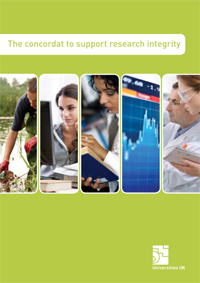by Suzy Wignall, Clinical Governance Adviser
 All clinical research, whether a simple interview study or a clinical trial of a new medicine, must adhere to a set of standards called Good Clinical Practice, or in other words, ‘GCP’.
All clinical research, whether a simple interview study or a clinical trial of a new medicine, must adhere to a set of standards called Good Clinical Practice, or in other words, ‘GCP’.
It is the international ethical, scientific and practical standard to which all clinical research is conducted and is in place to protect the rights, safety and wellbeing of research participants and to ensure the data collected through the research is credible and of a high quality.
GCP is a legal requirement in the UK, which stresses the importance of ensuring it is inherent throughout all research activities, regardless of the study type. Good data management and participant management guarantees the integrity of the research and the integrity of the researcher and their team.
Participants donate their time freely, and trust their sensitive data to the research team, therefore it is vital that said data is handled with care and their participation is valued.
A key component of GCP, is the feasibility process, or in other words, making sure those interested in conducting the research have the necessary facilities and measures in place to run the study safely and appropriately. This might be a hospital team, a GP practice, or even just an external colleague. Regardless, all involved must be appropriately trained and experienced, in turn again ensuring the integrity of the research and the research activities being conducted.
Research integrity and GCP go hand in hand and should be considered at every stage of the study, from design and planning, to receiving consent and data collection, right through to publication of the results.
Part of ensuring that research integrity is maintained, is by good documentation and filing. Under GCP, the ALCOAC general principles are key –
- Attributable
- Legible
- Contemporaneous
- Original
- Accurate
- Complete
If a total stranger was to review your study records, they should be able to re-create the study through the contents of the files. Indeed, clinical research is often monitored and audited, by both the organisations responsible for the study, and by regulatory bodies. Organisations can be prevented from conducting future studies if any critical findings arise from inspection, so integrity of the research and data is key from a reputational standpoint too.
Appropriate file-keeping and using the correct versions and dates of documents likewise ensures participant safety. When a participant is invited to a study, they should receive all the information they require and have the opportunity to ask questions or for additional documentation to allow them to make an informed decision. Not only does this then ensure you are receiving fully informed consent, but you are ensuring GCP standards are maintained.
Although this post has concerned integrity in clinical research, a lot of the good practice is transferable to non-clinical, particularly when studies involve human participants.
There are a number of documents available on the Research Governance & Integrity website (click explore Clinical Governance) such as a template file index, a new researcher checklist and template participant-facing documents. We advise that researchers at BU use these for all types of studies, to ensure the highest standards of research governance, ethics and integrity.
 Postdoc Appreciation Week(PAW) takes place each year to celebrate, showcase and recognise the contribution that postdoctoral researchers make towards research and academic life.
Postdoc Appreciation Week(PAW) takes place each year to celebrate, showcase and recognise the contribution that postdoctoral researchers make towards research and academic life. Today’s spotlight is on Research Misconduct.
Today’s spotlight is on Research Misconduct. All clinical research, whether a simple interview study or a clinical trial of a new medicine, must adhere to a set of standards called Good Clinical Practice, or in other words, ‘GCP’.
All clinical research, whether a simple interview study or a clinical trial of a new medicine, must adhere to a set of standards called Good Clinical Practice, or in other words, ‘GCP’.










 Beyond Academia: Exploring Career Options for Early Career Researchers – Online Workshop
Beyond Academia: Exploring Career Options for Early Career Researchers – Online Workshop UKCGE Recognised Research Supervision Programme: Deadline Approaching
UKCGE Recognised Research Supervision Programme: Deadline Approaching SPROUT: From Sustainable Research to Sustainable Research Lives
SPROUT: From Sustainable Research to Sustainable Research Lives BRIAN upgrade and new look
BRIAN upgrade and new look Seeing the fruits of your labour in Bangladesh
Seeing the fruits of your labour in Bangladesh ECR Funding Open Call: Research Culture & Community Grant – Apply now
ECR Funding Open Call: Research Culture & Community Grant – Apply now ECR Funding Open Call: Research Culture & Community Grant – Application Deadline Friday 12 December
ECR Funding Open Call: Research Culture & Community Grant – Application Deadline Friday 12 December MSCA Postdoctoral Fellowships 2025 Call
MSCA Postdoctoral Fellowships 2025 Call ERC Advanced Grant 2025 Webinar
ERC Advanced Grant 2025 Webinar Update on UKRO services
Update on UKRO services European research project exploring use of ‘virtual twins’ to better manage metabolic associated fatty liver disease
European research project exploring use of ‘virtual twins’ to better manage metabolic associated fatty liver disease